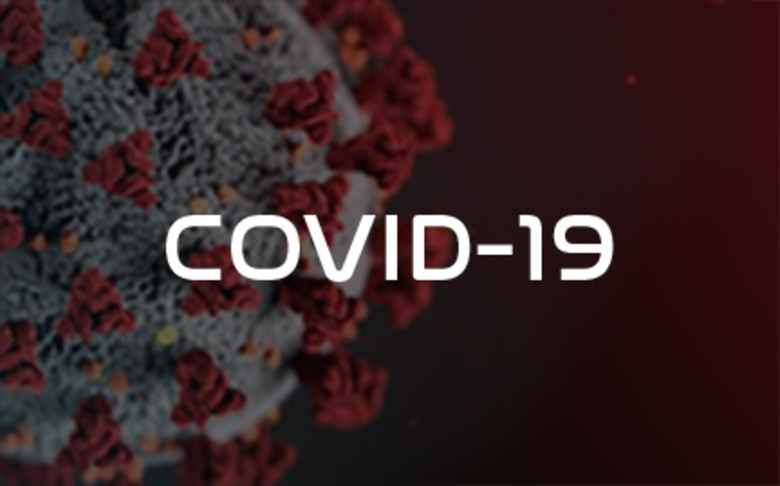Why COVID-recovered patients have cardiac events when exercising:
COVID-19, caused by the novel coronavirus SARS-CoV-2, primarily affects the respiratory system. However, concerns regarding its impact on other organs, particularly the heart, have been raised. While respiratory symptoms remain the hallmark of the disease, it has become evident that COVID-19 can have significant implications for cardiovascular health.
In addition to the immediate heart-related complications that can occur during COVID-19 infection, there is growing evidence suggesting an increase in the frequency of cardiovascular events even after the acute phase of the illness. Several countries, including Japan, Norway, and Australia, have reported excess mortality attributed to cardiovascular events, even when the Omicron variant, generally considered less severe, was dominant.

Traditionally, risk factors such as tobacco use, high blood pressure, and high cholesterol have been associated with cardiovascular disease. However, COVID-19 has emerged as an additional risk factor independent of these traditional factors. The exact mechanisms underlying this association are not yet fully understood and continue to intrigue scientists.
One proposed mechanism is the direct invasion of the heart by the SARS-CoV-2 virus. While primarily a respiratory virus, SARS-CoV-2 can infect cells that express angiotensin-converting enzyme 2 (ACE2), which is found not only in the respiratory tract but also in the heart and blood vessels. Viral invasion of the heart could lead to inflammation, myocarditis (inflammation of the heart muscle), and subsequent cardiovascular complications.
Furthermore, the body’s immune response to the virus can also contribute to cardiovascular damage. In severe cases of COVID-19, an exaggerated immune response known as a cytokine storm can occur. This immune dysregulation leads to systemic inflammation and can harm the cardiovascular system, including endothelial dysfunction, blood clot formation, and plaque rupture.
Another contributing factor is the indirect impact of COVID-19 on cardiovascular health. The pandemic has disrupted routine healthcare services, leading to delays in seeking medical care for cardiovascular conditions. Patients with pre-existing heart conditions may have faced challenges accessing necessary treatments, including timely surgeries or interventions to manage acute cardiac events. These delays and disruptions in healthcare can contribute to adverse outcomes and increased mortality.
Additionally, the psychological stress associated with the pandemic has also been linked to cardiovascular health. The fear, anxiety, and social isolation experienced during the pandemic can have a negative impact on mental well-being, which in turn can affect cardiovascular health. Stress and mental health disorders are known risk factors for cardiovascular disease and can exacerbate existing conditions.
The implications of COVID-19 on cardiovascular health extend beyond acute illness. Studies have shown that survivors of severe COVID-19 may experience long-term cardiac complications. Conditions such as myocardial injury, heart failure, arrhythmias, and thromboembolic events have been reported in individuals even months after recovering from the acute infection. This highlights the importance of long-term monitoring and follow-up care for individuals who have been infected with the virus.

Recognizing the association between COVID-19 and cardiovascular disease is crucial for healthcare providers. Early identification of individuals at increased cardiovascular risk, both during acute illness and post-infection, is essential for appropriate management and preventive measures. Timely interventions, including the use of medications to control blood pressure and cholesterol, lifestyle modifications, and regular cardiac monitoring, can help mitigate the risk of cardiovascular complications in individuals affected by COVID-19.
Furthermore, public health measures aimed at reducing the spread of COVID-19 can indirectly contribute to the prevention of cardiovascular disease. Vaccination campaigns, adherence to mask-wearing and social distancing guidelines, and promoting overall public health and hygiene can help reduce the burden of COVID-19 and its potential impact on cardiovascular health.
The exact mechanism underlying COVID-related myocarditis is not yet fully understood. It is believed that the SARS-CoV-2 virus can directly invade heart cells, leading to inflammation and damage. The immune response mounted against the virus can also contribute to myocardial inflammation. Additionally, the hyperinflammatory state associated with severe COVID-19, known as a cytokine storm, can further exacerbate cardiac inflammation.
One concerning aspect of COVID-related myocarditis is that symptoms may not be present at rest but can manifest during physical exertion, such as exercise. This is known as exercise-induced myocarditis.
During exercise, the heart has an increased demand for oxygen and nutrients. If the heart muscle is inflamed or damaged, the added stress of exercise can trigger symptoms or exacerbate existing cardiac dysfunction.

The study highlighted that individuals who had recovered from COVID-19 and were considering returning to exercise should undergo a thorough evaluation, including cardiac imaging and functional testing, to assess their cardiac health and identify any signs of myocarditis or other cardiovascular abnormalities. This is particularly important for individuals who experienced a severe or prolonged course of COVID-19, as they may be at higher risk.
In conclusion, while the respiratory symptoms of COVID-19 are well-known, the disease’s impact extends beyond the lungs. COVID-19 has been recognized as an additional risk factor for cardiovascular disease, contributing to an increased frequency of cardiovascular events. The mechanisms underlying this association are complex and multifactorial, involving both direct viral effects and indirect impacts on immune response and healthcare access. Recognizing and addressing the cardiovascular implications of COVID-19 is crucial for healthcare providers and public health efforts to mitigate the long-term consequences of the disease on cardiovascular health.
